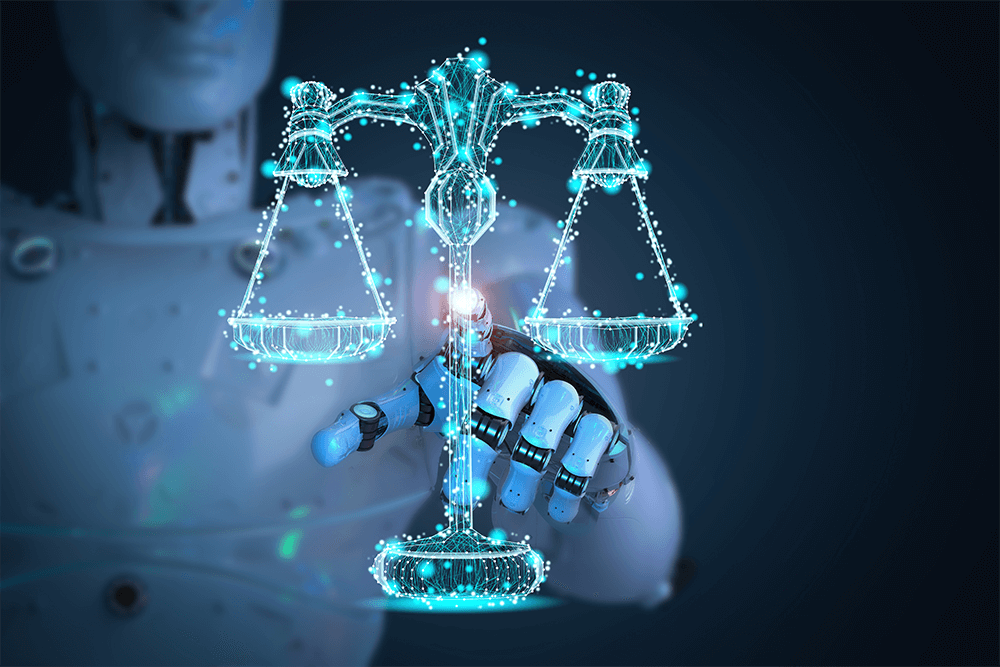Legal AI is rapidly transforming the traditional, document-heavy legal industry. In 2025, AI tools are automating legal research, improving accuracy, and drastically reducing case preparation time — all of which are reshaping how legal work is done.

Whether you’re a solo attorney, part of a law firm, or managing legal compliance for a business, these 7 powerful Legal AI tools are changing how legal work is done.
How Legal AI is Shaping the Future of Law in 2025?
1️⃣ AI Legal Research Assistants
Gone are the days of spending countless hours searching through legal databases. With Legal AI platforms like Casetext’s CoCounsel and Harvey AI, lawyers can instantly find relevant case law, summarize legal precedents, and identify conflicting judgments. AI legal assistants can analyze large volumes of data in a fraction of the time it would take a human researcher, making them a must-have tool for lawyers looking to streamline their research process.
2️⃣ Contract Review & Drafting Automation
Legal AI tools like Luminance and Lawgeex allow lawyers to automatically review and draft contracts with incredible accuracy. By using machine learning algorithms, these tools can flag unusual clauses, identify compliance issues, and even recommend standard legal wording. This automation reduces manual errors, speeds up the contract review process, and ensures that companies, especially startups, can stay compliant with legal regulations.
3️⃣ AI-Powered Legal Chatbots for Client Interaction
Many law firms are adopting AI-powered legal chatbots like DoNotPay and ChatLegal to handle routine client inquiries. These bots can answer frequently asked legal questions, explain processes, and even schedule consultations. By automating these tasks, lawyers can focus on more complex issues while also providing their clients with fast, 24/7 support. Legal firms are now deploying AI chatbots like DoNotPay and ChatLegal to:
- Answer common legal questions
- Help clients understand legal processes
- Book consultations automatically
These bots work 24/7, enhancing client experience while reducing workload on staff.
4️⃣ Litigation Prediction & Case Analysis
Imagine being able to predict the outcome of a case based on historical data and trends. With tools like Lex Machina and Blue J Legal, Legal AI can analyze past case outcomes and judge behavior to predict the likelihood of success in upcoming cases. This predictive capability allows lawyers to develop smarter strategies and allocate resources more effectively.. Imagine being able to predict how a case might go based on historical data. Legal AI tools like Lex Machina and Blue J Legal provide:
- Case outcome predictions
- Judge behavioral analysis
- Strategic legal insights
Lawyers now prepare smarter and argue better, backed by AI-driven analytics.
5️⃣ AI in eDiscovery & Document Management
The volume of digital evidence in legal cases is growing exponentially. Legal AI platforms like Relativity and Everlaw are at the forefront of eDiscovery by helping lawyers quickly scan thousands of documents, identify relevant files, and detect patterns or keywords in the data. This saves significant time and money, especially in cases where vast amounts of evidence need to be reviewed.. Modern legal cases involve huge volumes of digital evidence. Legal AI platforms such as Relativity and Everlaw are used for:
- Scanning thousands of emails or documents
- Identifying relevant files
- Detecting keywords or patterns in data
This makes eDiscovery faster, more cost-efficient, and compliant with legal deadlines.
6️⃣ Legal AI for Compliance Monitoring
In today’s fast-changing regulatory environment, staying compliant is more important than ever. Legal AI tools like ComplyAdvantage and Aiden.ai monitor policy changes, assess risk exposure, and provide regulatory alerts. These AI-driven systems ensure that businesses can automatically stay on top of legal obligations without the risk of human error.. Companies face increasing regulations — from GDPR to employment laws. AI tools like ComplyAdvantage or Aiden.ai help monitor:
- Policy changes
- Risk exposure
- Regulatory alerts
Legal AI in compliance ensures your business avoids penalties, audits, or lawsuits by staying informed automatically.
7️⃣ Voice-to-Law: Transcription & Dictation AI
Busy lawyers use Legal AI tools like Otter.ai or Sonix to:
- Transcribe meetings, hearings, and depositions
- Summarize voice notes
- Generate readable, searchable legal records
This improves documentation speed, helps with record-keeping, and makes remote work easier than ever.
💼 Who Can Benefit from Legal AI?
Law Firms – Automate drafting, reduce research time
In-House Legal Teams – Streamline contract and compliance workflows
Startups & SMBs – Get access to basic legal assistance affordably
Solo Practitioners – Manage more clients without burnout
Paralegals & Legal Assistants – Focus on high-value tasks instead of data entry
🧠 Final Thoughts: Legal AI Is the Future of Law in 2025
The legal world is no longer immune to automation — and that’s a good thing. With Legal AI, attorneys can deliver faster, smarter, and more cost-effective legal services while focusing on what really matters: strategic thinking and human advocacy.
✅ Reduces repetitive work
✅ Speeds up case prep
✅ Increases client satisfaction
✅ Lowers legal costs
✅ Democratizes access to legal services
📌 Ready to explore Legal AI tools?
Start with platforms like Harvey AI, Casetext, or DoNotPay. Many offer free trials or demos.
🎥 For Tamil + English AI tool reviews and tutorials, follow G Cloud Techphile on YouTube
